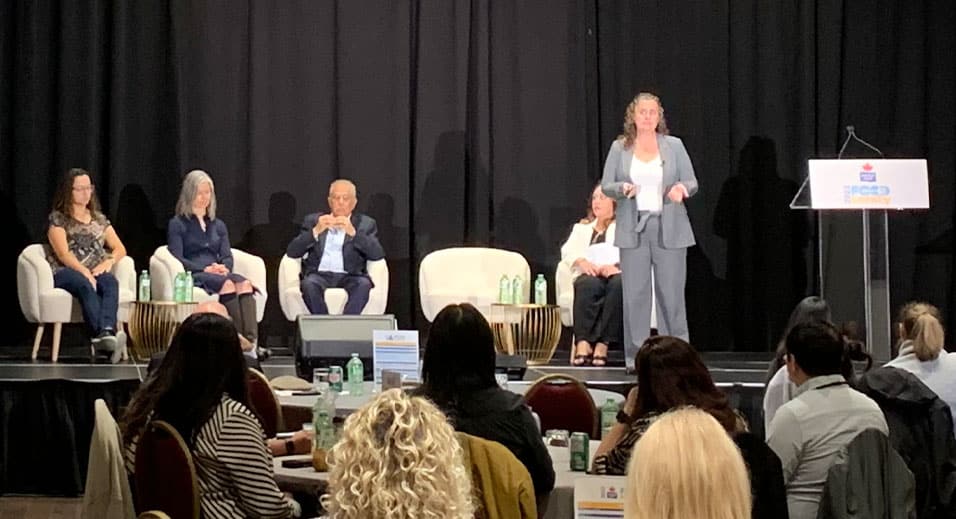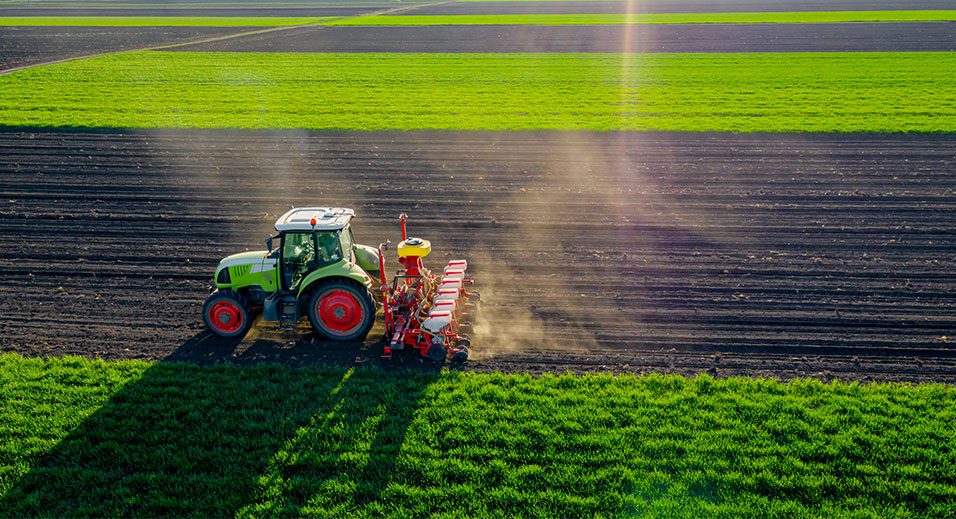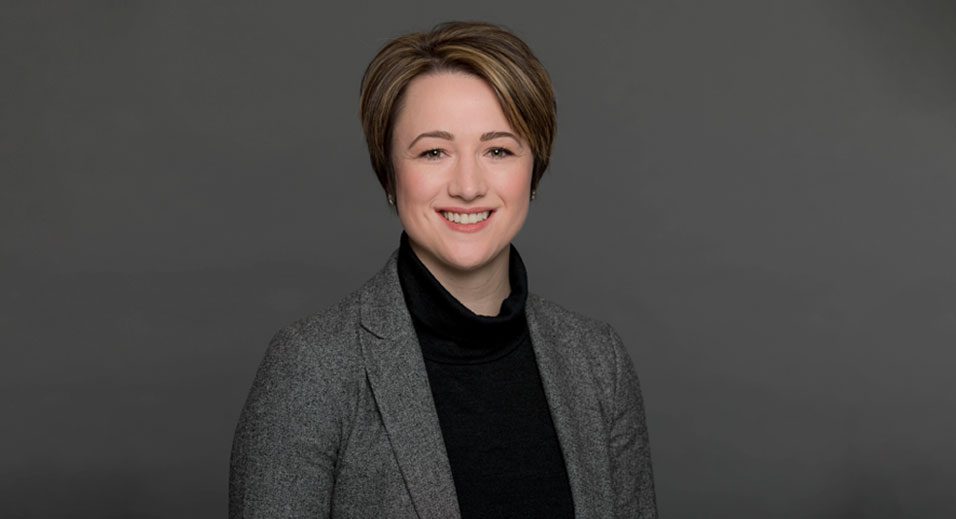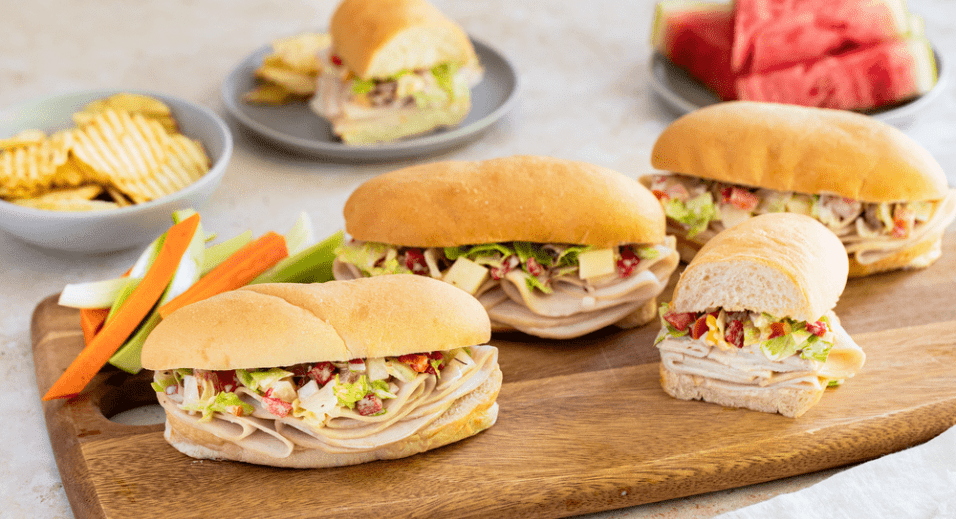Industry experts in food safety and sustainability shared valuable insights on how we can optimize food production processes sustainably.
By Randy Huffman, Chief Food Safety and Sustainability Officer
On October 24th, we hosted our 13th annual Food Safety Symposium welcoming industry experts and guests back in person after hosting the annual event virtually for the past few years. It was wonderful to gather together again for an insightful and innovative conversation about how food production processes can be optimized while improving sustainability.
At Maple Leaf Foods, we’re commitment to providing safe food for all Canadians and we’re dedicated to facilitating knowledge sharing across the food industry. Aligned with our vision to be the most sustainable protein company on earth, the theme of this year’s symposium was Bridging the Gap: A Symposium on Food Safety and Sustainability. It highlighted the importance of understanding that food safety and sustainability are not tradeoffs, and this year’s speakers offered valuable insights on how we can optimize both.
Food 2050: the current state of food production and the future of our food system
Symposium keynote speaker, Evan Fraser, Director of the Arrell Food Institute at University of Guelph, led a dynamic discussion on the current state of food production and the future of food, highlighting the crucial nature of food safety in this journey.
“Feeding the future is one of the defining challenges of humanity,” said Fraser. “While this challenge is huge, we have new ways of producing food that can boost the environment and health of people.”
Fraser continued by sharing predictions that will frame the next 10 years in the future of food. “I think we’re about to go through a confusing period of disruption. As we look forward into the next 50 years, we must be asking tough questions like what the impact on farmers and communities will be — do we have the wisdom and humility and compassion to stay ahead in this transition and to help communities and families as these changes happen?”
Sanitation executed sustainably without compromising food safety
We had an inspiring discussion between Faye Cooper, our Vice President of Sustainability Execution, Asset Reliability, and Industrial Engineering, and Steven Tsuyuki, our Senior Director of Corporate Sanitation who addressed how sanitation can be executed sustainably.
“How do we eliminate the damage that’s caused by sanitation?” asked Tsuyuki, who shared some of the actions we’ve taken to mitigate the environmental impacts of our sanitation programs without compromising food safety.
Tsuyuki explained how we must move away from the perception that we can only prioritize either safety or sustainability. “Optimized cleaning is a paradigm shift. We want to standardize and improve our sanitation process, do it both effectively and efficiently, maintain asset care, and be aware of its sustainability impact.”
Cooper echoed his statement and reminded industry leaders that we must foster knowledge sharing when it comes to food safety and sustainability efforts.
“What we’re really hoping to do is share some of our best practices with the rest of world. When it comes to food safety and sustainability, there’s no advantage to ‘holding cards close to our chest’ — it’s a global effort,” she shared.
Innovations in sustainable packaging
In our second half of the day, we had a dynamic panel that addressed the opportunities within sustainable packaging innovations. Moderated by Spir Marinakis, our VP of Food Safety, Quality, Technical Services and Sanitation, she spoke with panellists Crystal Howe, Director of Sustainability at Ice River Sustainable Solutions, Naeem H. Mady, Vice President of Regulatory Market Access at Intertek Assuris, Beth Mielbrecht, Associate Director at Intertek Assuris, and Nicole Tucker, Senior Director of Quality and Sustainability at Loblaw Companies Limited.
“Packaging is key to maintaining quality and food safety,” Tucker stated before sharing on Loblaw’s plastic waste reduction commitment and the company’s Golden Design Rules. “We need to ensure we’re empowering the food safety teams at our facilities to meet the needs of our customers.”
Mady discussed the pivotal nature of packaging and the importance of sustainably recycling plastics. He shared: “Packaging today is the coordinated system of transportation, distribution, storage, shelf-life extension, tractability, information transferring, labelling, protection, and safety. Plastic is not going to disappear. But we do have to mitigate the amount of plastic in the environment.”
Howe finished off the session by highlighting the importance of asserting care in every step of food packaging production. “What you put in is what you get out,” she said. “It’s the little changes along the way that impact [product] recovery.”
Building sustainability in the laboratory
In our final panel of the day, Leaya Amey, our Manager of Sustainability, led a conversation with Scott Grant, Senior Director of Programs at My Green Lab, and Diane Wood, Director of Technical Services, also at Maple Leaf Foods. They discussed the topic of ‘building sustainability in the laboratory’.
We’re proud of our ongoing partnership with My Green Lab. In fact, our Corporate Central Laboratory in Puslinch, Ontario was the first laboratory in Canada to receive “Green” status in the My Green Lab (MGL) certification program, a proven process to reduce the impact of laboratories.
“Our mission is to provide the highest quality of laboratory testing through technical expertise, leading technologies, and continuous improvements,” said Wood, adding, “Our passion is the food that we produce, and we want to do it with the utmost quality and sustainability.”
Thank you to everyone who participated in our 13th annual Food Safety Symposium, where we highlighted the importance of bringing together food safety and sustainability in our food systems. In a closing reflection on the day’s events, I shared a quote from American cultural anthropologist Margaret Mead: “Never doubt that a small group of thoughtful, committed individuals can change the world. In fact, it’s the only thing that ever has.”
I look forward to next year’s Food Safety Symposium where we can gather again in-person for a dynamic day of sharing and learning. As we continue to collectively embrace change, share best practices, and never lose our vision in caring for our people and the planet, I know the food industry will be in good hands.



